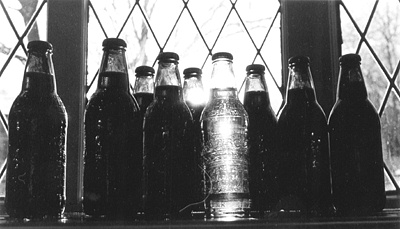All Nonfiction
- Bullying
- Books
- Academic
- Author Interviews
- Celebrity interviews
- College Articles
- College Essays
- Educator of the Year
- Heroes
- Interviews
- Memoir
- Personal Experience
- Sports
- Travel & Culture
All Opinions
- Bullying
- Current Events / Politics
- Discrimination
- Drugs / Alcohol / Smoking
- Entertainment / Celebrities
- Environment
- Love / Relationships
- Movies / Music / TV
- Pop Culture / Trends
- School / College
- Social Issues / Civics
- Spirituality / Religion
- Sports / Hobbies
All Hot Topics
- Bullying
- Community Service
- Environment
- Health
- Letters to the Editor
- Pride & Prejudice
- What Matters
- Back
Summer Guide
- Program Links
- Program Reviews
- Back
College Guide
- College Links
- College Reviews
- College Essays
- College Articles
- Back
Flash Flood
I was in another state when the flood hit, watching intently the rehearsal of whatever fancy orchestra my father was presently in from my seat on the floor backstage. We were in Boston, and I only know that because I used to ask my Dad questions sometimes. I don’t remember what the orchestra was called. I didn’t ask him about that. He stopped playing after the flood, and it always felt wrong to ask him anything concerning the cello case gathering dust in the closet. And I don’t dare ask about that night. He goes quiet when I ask about it, then shakes his head and apologizes for being a bad father.
It was November when it happened, I’m sure. It was dry where we were. The rehearsal was at night, just after dinner. I don’t know how long it lasted, but it was late by the time it was over. He was packing away his cello when the phone rang. Even at seven years old, I could sense that something bad had happened. He answered the phone with a criterion,
“Hello?” The person on the other end said something, and immediately his smile disappeared. “Oh, God,” he exclaimed. I stared at him with wide eyes, and he immediately quieted. “No. What do you mean?” He disappeared into another room.
When he returned, his face was red and his voice wavered. “Hey, Alex, buddy,” he called me, and I ran over to him obediently. He wrapped his arms around me and cried.
“What’s wrong?” I asked innocently. He pulled away from me, looked down at me pitifully. He said nothing, but sank down to level with me. He held me again. “What happened?”
“You know, your Mom loves you, very much,” he said, suddenly. He paused, cleared his throat. “There was a flood, back at home.” He halted and stared at me, hoping I’d put two and two together. “There was an accident. Your Mom… she… well…” he sputtered, searching for the right words. “She had to leave. She isn’t coming home.” I was a smart child, perhaps too smart for my own good. I knew what he was trying to say.
“She… Mommy died?” Sometimes, I still can’t believe I asked that. He nodded and held me tighter. I cried, too, and we just sat there and cried inconsolably.
Later, as we drove home, he added again, dilatorily, that my mother loved me, and that he did, too. He said nothing else for the remainder of the night.
That was the last time I ever saw him play the cello for a long time. Our house was destroyed in the flood, so we moved into a small, one-story house with my Aunt Claire, my mother’s sister. I asked her questions sometimes. She didn’t mind.
When I was eight years old, I asked her what happened to my Mom.
“There was a flood,” she explained carefully over lunch one afternoon. “A flash flood. That means it happened very suddenly. Your Mom was driving, and her car got caught up in the water. I’m sure she tried to escape, but she didn’t make it.”
“She drowned?” I asked.
“Yes, she drowned.” That summer, I refused to swim in the pool.
When I was nine, I asked her what Dad’s job was, and why it always kept him out late.
“He works at an office building. He works on papers and reports, like you do at school, almost,” she said carefully.
“Why does that make him late all the time?”
“It’s not because of his work. You know how you like pretzels?” They were my favorite food; I ate them nearly every day.
“Yeah.”
“Well, he likes something a lot, too, but it’s not good for him and it causes a lot of problems. Sometimes, he goes out and has too much of it, and he can’t always stop himself. But he knows it’s a problem and he’s trying to fix it.
When I was ten, I asked her why Dad didn’t play the cello anymore.
“I can’t answer that question,” she admitted.
She instructed me to ask him, and I waited impatiently for him to return from work. As soon as he’d taken his coat off, I asked:
“Why don’t you play the cello anymore?” He froze and stared at me as if for a moment he didn’t understand the question.
“I don’t know,” he said finally, slowly. We stared at each other for a few seconds before he glanced at his watch and, as if surprised by the time, announced: “Hey, Spongebob’s on now.” He herded me into the sitting room, and I didn’t ask the question again.
When I returned home from school the next day, he had the cello out.

Similar Articles
JOIN THE DISCUSSION
This article has 0 comments.
